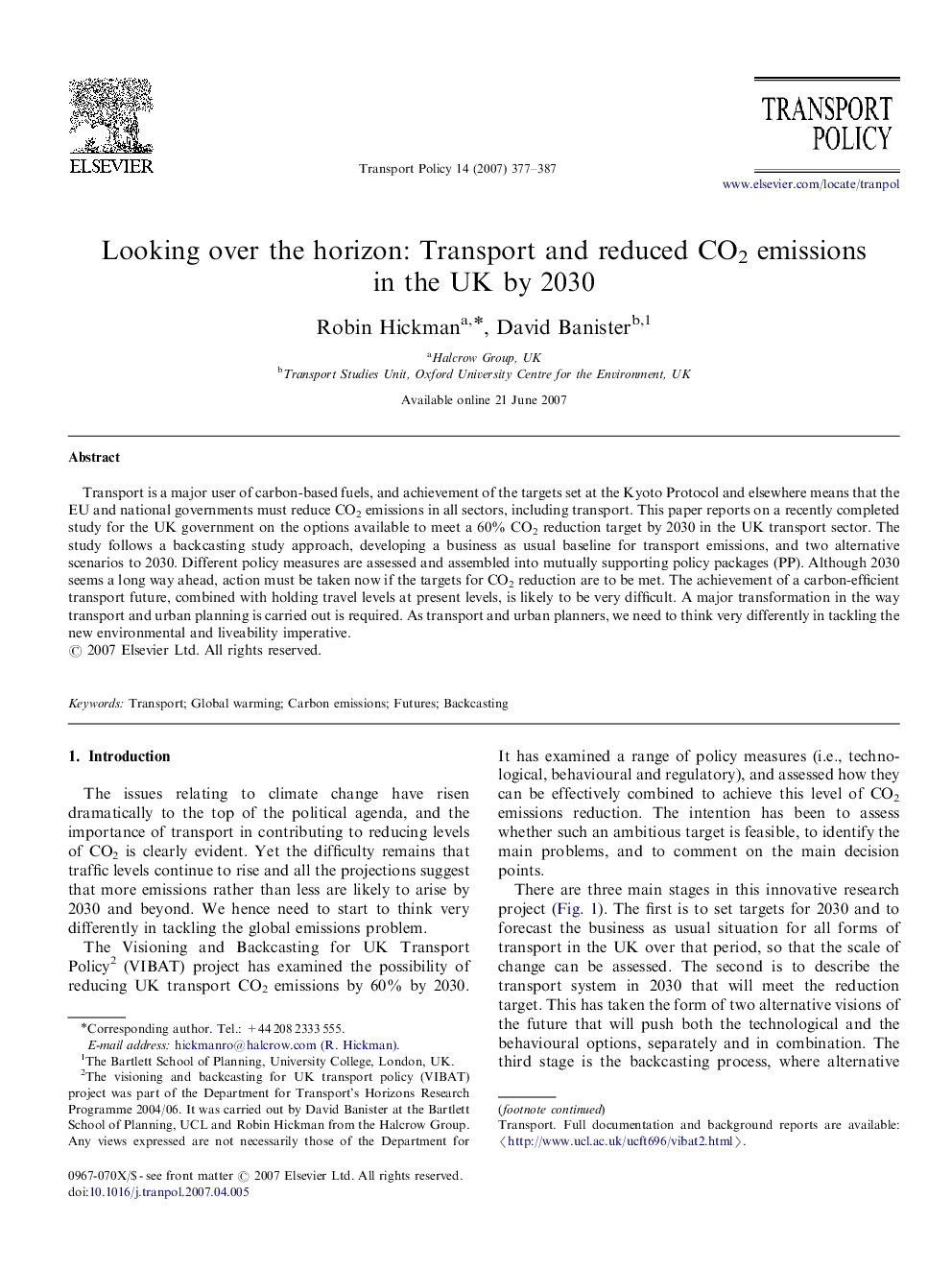| Article ID | Journal | Published Year | Pages | File Type |
|---|---|---|---|---|
| 1065522 | Transport Policy | 2007 | 11 Pages |
Transport is a major user of carbon-based fuels, and achievement of the targets set at the Kyoto Protocol and elsewhere means that the EU and national governments must reduce CO2 emissions in all sectors, including transport. This paper reports on a recently completed study for the UK government on the options available to meet a 60% CO2 reduction target by 2030 in the UK transport sector. The study follows a backcasting study approach, developing a business as usual baseline for transport emissions, and two alternative scenarios to 2030. Different policy measures are assessed and assembled into mutually supporting policy packages (PP). Although 2030 seems a long way ahead, action must be taken now if the targets for CO2 reduction are to be met. The achievement of a carbon-efficient transport future, combined with holding travel levels at present levels, is likely to be very difficult. A major transformation in the way transport and urban planning is carried out is required. As transport and urban planners, we need to think very differently in tackling the new environmental and liveability imperative.
